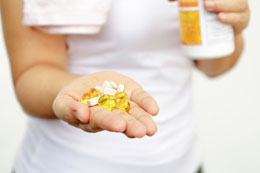Some examples of sexually transmitted diseases include genital herpes, chlamydia, syphilis, gonorrhoea, warts and HIV/AIDS. These are infections; the main mode of propagation being unprotected sexual intercourse.
Healthcare providers and doctors have major roles to play in the prevention and treatment of STDs. Most STDs are either curable or treatable. While certain well-known STDs such as gonorrhoea, trichomoniasis, syphilis and chlamydia are curable, diseases such as Hepatitis B, HPV, herpes and HIV/AIDS, even though treatable, are not curable. Some of the common curable STDs are discussed below:
Chlamydia: Symptoms in females include a burning sensation during urination, unusual vaginal discharge and bleeding between periods while men experience unusual discharge from the penis as well as pain during urination. Doctoral prescription includes antibiotics such as doxycycline or azithromycin. Treatment of the partner to prevent reinfection is recommended. Severe cases of Chlamydia need hospitalization, intravenous (through the veins) medications and painkillers.
Gonorrhoea: Symptoms in males include increased frequency of urination, unusual discharge from the penis as well as pain during urination while the symptoms in women are the same as in Chlamydia. Antibiotics such as ceftriaxone (in the form of an injection) combined with oral antibiotics such as doxycycline or azithromycin are recommended.
Syphilis: Symptoms include appearance of ulcers (chancres) around the genitalia or the oral region, severe rashes around the hand or feet coupled with other symptoms of mild fever, headache, throat pains and immense fatigue. Penicillin injections are the easiest forms of syphilis treatment. Other oral antibiotics include doxycycline, azithromycin or ceftriaxone.
Genital Herpes: Symptoms may appear soon after infection and are usually severe. Symptoms include blisters which turn into raw and painful sores that scab and heal over time. This might be accompanied with swollen lymph nodes and fever. Treatment mainly involves antiviral medications, the primary ones being ‘famciclovir’, ‘acyclovir’ and ‘valacyclovir’, in pill form. In severe forms, the medications are administered intravenously.







































